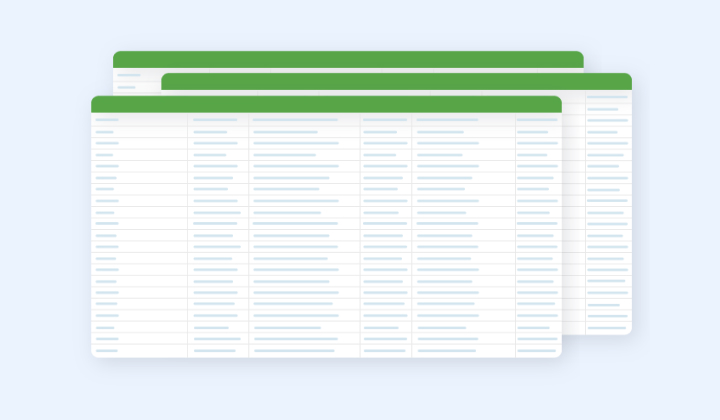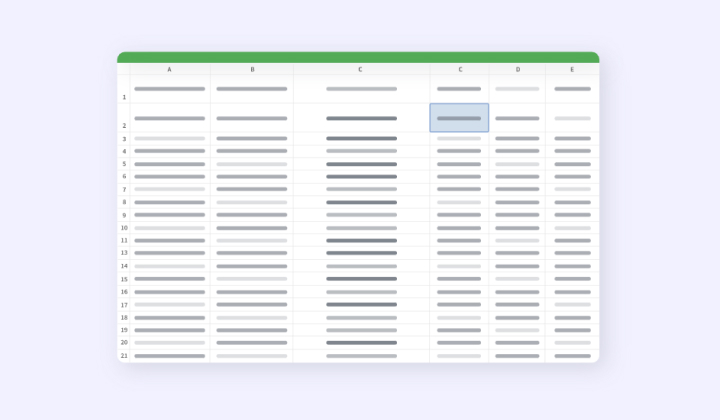Why Spreadsheets Are Risky Business for HR Teams

Many organisations are still dependent on spreadsheets to track and maintain their HR operations. Findings from our whitepaper show that over a quarter (25.6%) of SMEs are managing employee data in spreadsheets. 🤯
Oracle purports a similar trend across HR departments globally. A recent report shows that 56% of organisations use spreadsheets to manage people analytics.
However, selfie sticks and double denim proves that just because something is popular doesn’t mean that it’s good. Spreadsheets are a prime example of this paradox. 🤦♀️
Despite their popularity, there are still many negatives to using spreadsheets. Once an office essential for many businesses, spreadsheets are, today, an inadequate option for securely managing workload and HR data.
For one, spreadsheet software is time consuming to use because it requires a lot of manual entry. Secondly, spreadsheets also lack the type of reporting that HR departments need. For example, reporting for new hires, reasons for departure or just general people delegation. 👎
Over time, using spreadsheets can cause unnecessary errors and confusion that can halt smooth operations. Still not convinced? This article looks at a few reasons why spreadsheets need offboarding from your HR teams.
(not very) user-friendly
One of the challenges of using spreadsheets is entering and maintaining information. The process of finding specific information in spreadsheets can take forever. This issue is especially the case if your workforce is large.
When time is spent on routine manual tasks, other tasks or projects are not completed as quickly. This trade-off results in reduced productivity. To save time and effort, HR teams require a platform that is easy to use and accessible. 📉
Leaky security
There may also be a risk to the security of your data. Spreadsheets lack data security, which is one of their main pitfalls. This weakness can be attributed to the absence of data encryption.
Furthermore, spreadsheets shared between colleagues and teams make version control difficult, making data loss more likely. A quick online search shows some of the disasters involving financial data that have occurred as a consequence of using spreadsheets. 🔓
In short, spreadsheet data is vulnerable data.
Horrendous for hybrid
Furthermore, spreadsheets are not compatible with existing hybrid working procedures. Information cannot be accessed from anywhere and version control can be tricky to say the least.
On one level, silos are more likely to emerge when teams are not drawing from a central
data store. In addition, if HR teams cannot instantly access the most current data they need, then business procedures may be hindered. 🗺️
Without a central place for data, employees rely on HR teams for information about annual leave, sick days, and other areas. Sharing this data requires HR team members to take time away from work to give them this information.
How Gridfox can help
With Gridfox, HR teams can better manage employee data and administrative tasks. For HR departments seeking frictionless operations and team unity, Gridfox is essential. It allows you to manage applicant data, employee performance and training programs. Assigned tasks and multiple projects can be reviewed in real time.
Gridfox also provides secure storage for all HR data. All Gridfox projects are run in Microsoft Azure’s Cloud, which is robust, performant, and scalable.
In Gridfox, each project is contained within its own database, ensuring that data is protected from unauthorised access. Whatever kind of data you’re tracking, Gridfox provides a secure place to do so.
As a cloud-hosted platform, Gridfox allows you to manage your teams wherever they may be — ideal for today’s working environment. Data in the cloud can also be accessed at any time and from anywhere. Increased accessibility leads to better team collaboration, and ultimately, to higher productivity.
Using Gridfox, everyone can build powerful, customised applications that meet their exact needs. With Gridfox, whatever your use case, software experience or pain point, you can start for free.
Get started here.

